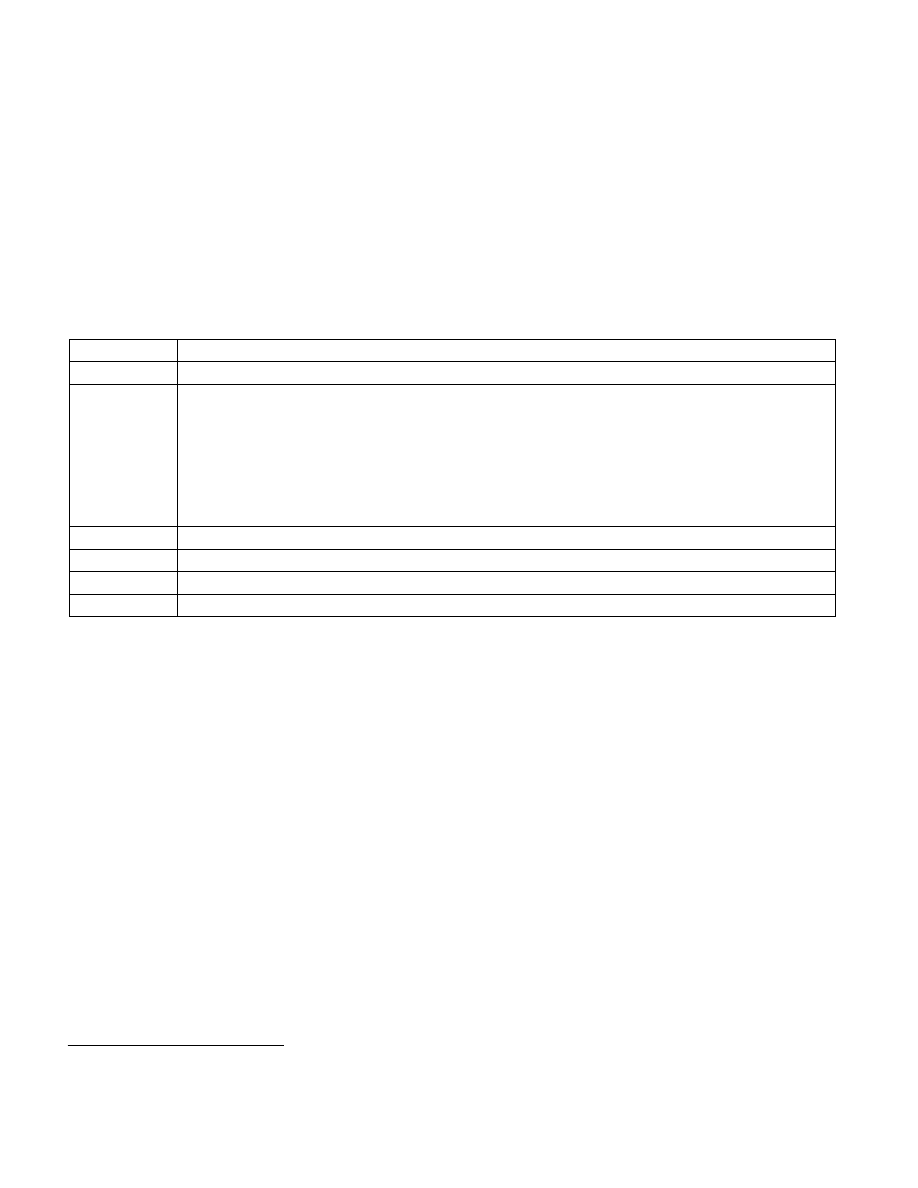
24-22 Vol. 3C
VIRTUAL MACHINE CONTROL STRUCTURES
•
Guest-physical address (64 bits). This field is used VM exits due to EPT violations and EPT misconfigurations.
See Section 27.2.1 for details of when and how this field is used.
24.9.2
Information for VM Exits Due to Vectored Events
Event-specific information is provided for VM exits due to the following vectored events: exceptions (including
those generated by the instructions INT3, INTO, BOUND, and UD2); external interrupts that occur while the
“acknowledge interrupt on exit” VM-exit control is 1; and non-maskable interrupts (NMIs). This information is
provided in the following fields:
•
VM-exit interruption information (32 bits). This field receives basic information associated with the event
causing the VM exit. Table 24-15 describes this field.
•
VM-exit interruption error code (32 bits). For VM exits caused by hardware exceptions that would have
delivered an error code on the stack, this field receives that error code.
Section 27.2.2 provides details of how these fields are saved on VM exits.
24.9.3
Information for VM Exits That Occur During Event Delivery
Additional information is provided for VM exits that occur during event delivery in VMX non-root operation.
1
This
information is provided in the following fields:
•
IDT-vectoring information (32 bits). This field receives basic information associated with the event that was
being delivered when the VM exit occurred. Table 24-16 describes this field.
Table 24-15. Format of the VM-Exit Interruption-Information Field
Bit Position(s)
Content
7:0
Vector of interrupt or exception
10:8
Interruption type:
0: External interrupt
1: Not used
2: Non-maskable interrupt (NMI)
3: Hardware exception
4 – 5: Not used
6: Software exception
7: Not used
11
Error code valid (0 = invalid; 1 = valid)
12
NMI unblocking due to IRET
30:13
Reserved (cleared to 0)
31
Valid
1. This includes cases in which the event delivery was caused by event injection as part of VM entry; see Section 26.5.1.2.